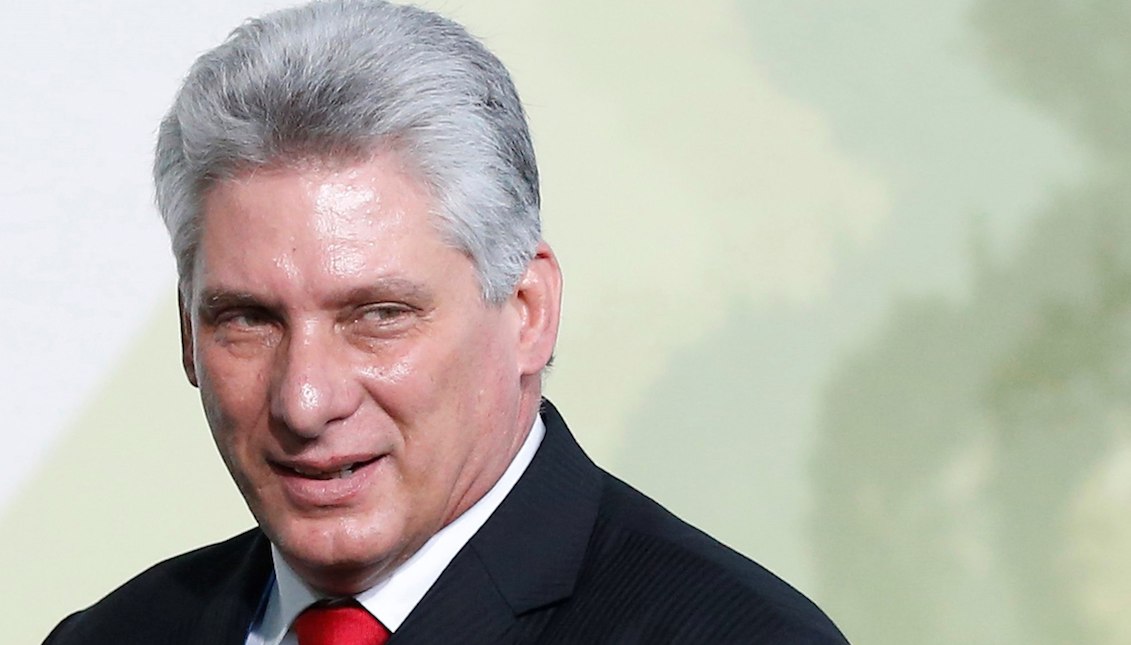
A foreseen President
Cuba inaugurates a new political period in the hands of a president chosen by Castro's hegemony.
"We will be faithful to the legacy of Fidel Castro, historical leader of the Revolution, and also to the example, value and teachings of Raúl Castro, current leader of the revolutionary process," said Miguel Mario Díaz-Canel Bermúdez, former first vice president of the Cuban government and now first president outside the Castro family, during his first speech as leader of Cuba.
If anyone had any doubt about the future of Castro's control over the island after Raúl Castro left the government, today they are all removed.
Diaz-Canel, 57, "was ratified with 99.83% of the votes of the National Assembly of People's Power," the newspaper El País explained, figures that perpetuate the impenetrability of the island in the face of dissent or opposition.
The new president said that "despite the handover, Raul Castro will lead the decisions of greater importance for the country," and said that "Cuban foreign policy will remain unchanged and reiterate that no one will achieve the purpose of weakening the Revolution or crush the Cuban people, because Cuba doesn’t make concessions against its sovereignty and independence."
Díaz-Canel was born in Villa Clara on April 20, 1960, "a year after the triumph of the Revolution led by Fidel Castro," as the Peruvian newspaper El Comercio recalls.
He began, like many others, as a communist youth of his community and became known for his leadership and his "popularity of a local rock star", becoming the first secretary of the Communist Party of Cuba (PCC) in Villa Clara for nine years, according to the media.
After being sponsored by the youngest Castro, Diaz-Canel spent quietly most of his career in front of the public eye, until arriving at the position of vice president of the nation and Raul's right hand.
Although the new president didn’t fight in the Cuban Revolution, he gradually won the respect of his comrades in the party for his dedication to the community and for his integration in government missions.
Being a radio specialist of the Cuban Armed Forces after his obligatory military service, Díaz-Canel headed between 1987 and 1989 "a contingent that traveled to Nicaragua to help the Sandinista government, then in a war against supporters of the former dictator Anastasio Somoza supported by the US", recalls the newspaper La Vanguardia.
RELATED CONTENT
It was from 2003 when "he joined the all-powerful Political Bureau of the party," he was promoted to deputy of the National Assembly by the Placetas (Villa Clara) district, and that same year "he was transferred to the political leadership of Holguin, where he was the provincial secretary until 2009".
Díaz-Canel then became Minister of Higher Education, Vice President of the Council of Ministers and Vice President of the State Council, representing Cuba in events abroad, gaining international visibility for the first time.
Now, assuming command, Díaz-Canel has announced that the priority of his government is "to give continuity to the Cuban Revolution in a historic and crucial moment", marked by "the advances in the updating of the economic and social model of the country", according to La Vanguardia.
For American media like the New York Times, Díaz-Canel “is suddenly taking on a difficult balancing act”.
"Most expect him to be a president of continuity," following the guidelines of Raúl Castro as leader of the PPC, but "the new president also has to figure out how to resuscitate the economy at a time when President Trump is stepping back from engaging with Cuba.”
For its part, the government of the United States today asked the new president of Cuba, "to listen to the desire of the Cuban people for a 'freer and more democratic' country, to improve their quality of life and put an end to 'repression',” EFE explained.
"The new president of Cuba should take concrete steps to improve the lives of the Cuban people, respect human rights, end repression and allow greater political and economic freedoms," a spokeswoman for the State Department told EFE.











LEAVE A COMMENT: